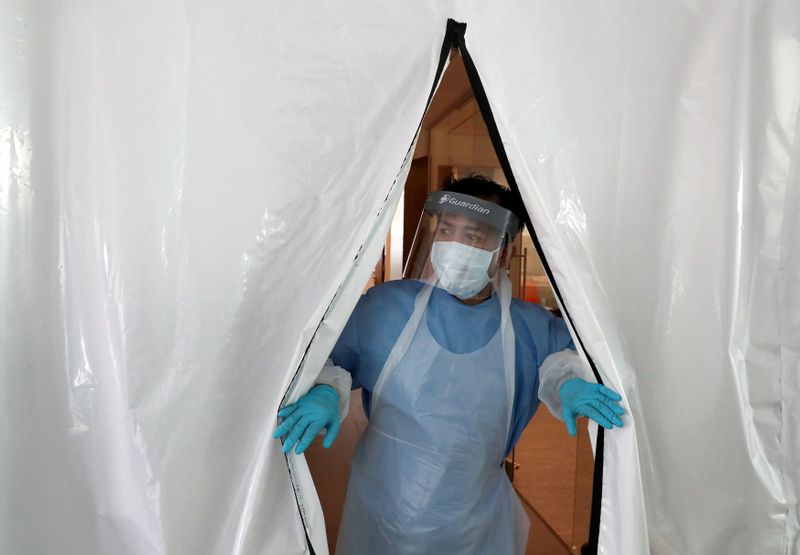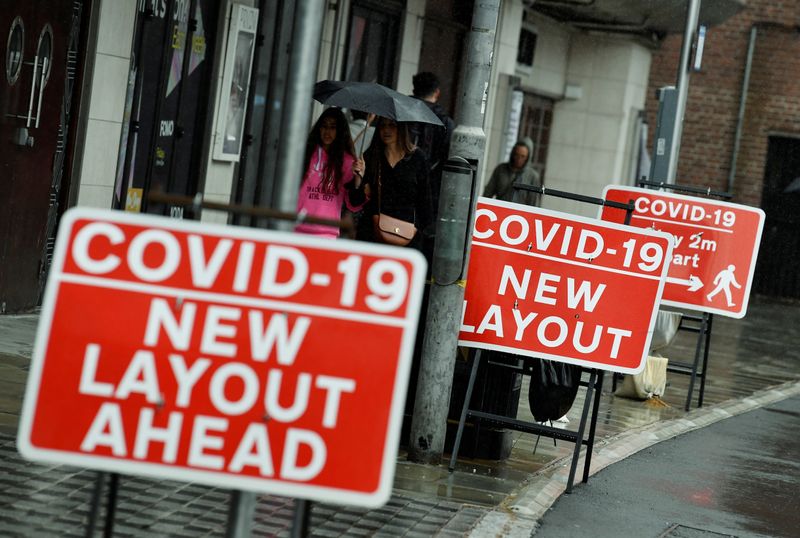By Sarah Young and Kate Holton
LONDON (Reuters) - Britain plans to bring in regular, population-wide testing for COVID-19 so it can suppress the spread of the virus and limit restrictions that have crippled one of the worst hit countries in the world.
Health Secretary Matt Hancock said the government was trialing a range of new, faster tests that can give instant results and hoped to roll them out towards the end of the year.
Prime Minister Boris Johnson's government has been heavily criticised for its handling of the pandemic, with critics saying it was too slow to go into lockdown and too slow to roll out testing to know how far the virus had spread.
It now has the highest death toll in Europe and the deepest economic contraction of a major advanced economy.
"The mass testing, population testing, where we make it the norm that people get tested regularly, allowing us therefore to allow some of the freedoms back, is a huge project in government right now," Hancock told BBC Radio.
He said the country's research laboratories at Porton Down were trialing new saliva tests that do not need to go to a laboratory, so they can deliver faster results.
"There are new technologies coming on track which we are buying and testing now," he said. "We'll ramp it up certainly over the remainder of this year."
The government has been criticised during the pandemic for promising new developments which then take much longer to arrive, such as the arrival of protective clothing for health workers or a comprehensive track and trace system.
The government says it currently has a testing capacity of more than 335,000. Cases in Britain have started to rise again in recent weeks with more than 1,000 positive results on eight of the last 10 days.

The government also said on Wednesday it would expand a testing study being run by the Office for National Statistics from 28,000 people now to 150,000 by October and ultimately to 400,000 to help establish a better national picture of the pandemic and spot local outbreaks.
